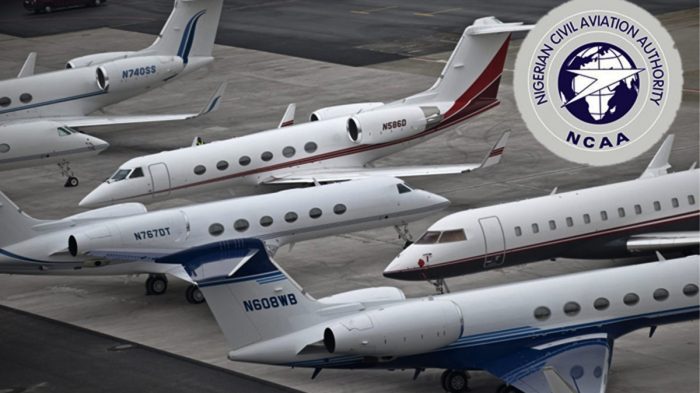- The Nigeria Civil Aviation Authority (NCAA) has issued an All Operator’s Letter (AOL) to airline operators, warning them about fuel contamination incidents in the aviation industry
- The NCAA has been receiving mandatory occurrence reports from airlines and other aircraft operators with issues related to water being found in the aircraft fuel tank
- The NCAA advised all airlines and operators to improve their refuelling procedures and test and inspect jet fuel quality before refuelling
The Nigeria Civil Aviation Authority (NCAA) has issued an All Operator’s Letter (AOL) to airline operators, warning them about fuel contamination incidents in the aviation industry.
This was in response to the recent discovery of a large volume of water in the fuel tank of one of Max Air’s aircraft, following the suspension of all Boeing 737 aircraft in its fleet last week.
Following the discovery, which caused the Max Air plane to be grounded, the NCAA dispatched a team of investigators to Lagos, Kano, and Abuja, where the airline had refuelled before the incident.
In the midst of the uproar that greeted the discovery, which averted a major incident in the industry, the NCAA issued an AOL to warn operators about the risks and hazards associated with aircraft refuelling.
The NCAA/DAWS/AD.1104/AOL085, dated July 14, 2023, and addressed to all airlines, aircraft operators, and aviation fuel suppliers, was signed by Gbolahan Abatan, an engineer, as Director of Airworthiness Standards.
According to AOL, “One of the most important topics in aviation safety is aircraft refuelling safety procedures and precautions.” When compared to other operations, ground handling has the highest risk factor.
There have been many flight accidents in history caused by fuel contamination resulting in abnormal operation of aircraft engines. Water is a major contaminant, amongst others.
In recent times, the NCAA has been receiving mandatory occurrence reports from airlines and other aircraft operators with issues related to water being found in the aircraft fuel tank of the aircraft. Of recent is a report of a significant amount of water drained from the fuel tank of a Boeing 737 aircraft that had a fuel indication and gauge malfunction in-flight, the letter said.
However, the NCAA advised all airlines and operators to improve their refuelling procedures, which were documented in their maintenance control manual/refueling manual and fuel suppliers operation manual/quality control manual.
According to the document, the procedures include a visual inspection of the fuel hose, gauges, tyres, and the overall body of the truck by ground staff.
The NCAA also demanded that the ground crew test and inspect jet fuel quality before refuelling, with the primary concern being the presence of water in the fuel.
During an interview about the fuel contamination, the Director-General of Civil Aviation, Captain Musa Nuhu, stated that fuel suppliers found wanting would have their licences revoked.
